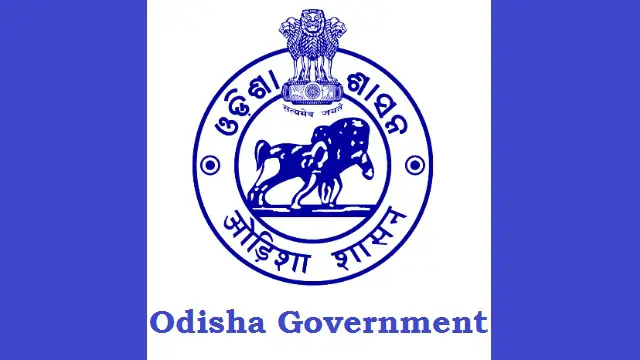Odisha issues new SOP for part plot registrations, check details
Odisha government today issued a new Standard Operating procedure (SOP) for registration of part plots, informed the Revenue and Disaster Management Department.
Bhubaneswar: Odisha government today issued a new Standard Operating procedure (SOP) for registration of part plots, informed the Revenue and Disaster Management Department.
Background and Objective:
- It has come to the notice of the government in Revenue and Disaster Management Department that many Registering Officers across the State are neither fully conversant with the provisions and procedures governing the registration of part plots nor with the applicability of various Acts and Rules relevant in such cases.
- To ensure uniformity, transparency, and ease of understanding for both the Registering Officers and “Ease of Living for the general public, this Standard Operating Procedure (SOP) is hereby issued to provide clear guidance on the registration of part plots in Odisha in supersessions of all previous resolutions/notifications/orders issued in this regard.
Relevant Legal Provisions:
- The following provisions of the Registration Act, 1908, the Odisha Registration Rules, 1988, and the Registration (Odisha Amendment) Act, 2013 shall be kept in mind by all the Registering Officers while registering part plots:
(a) As per Sections 21 and 22 of the Registration Act, 1908, read with Rule 147 of the Odisha Registration Rules, 1988, Registering Officers shall accept any non-testamentary deed relating to immovable property that provides a sufficient description of the property, enabling its identification through a map and the four boundaries of the sub-divided plot.
(b) Under Section 22-A(1)(c) of the Registration (Odisha Amendment) Act, 2013, Registering Officers shall refuse registration of any instrument relating to transfer of immovable property where such transfer or alienation is prohibited under any State or Central Act.
Permissible Categories of Part Plot Registrations:
- Properties in Rural Areas (outside Urban, Development and Town Planning Authority limits)
- Registration of documents transferring immovable property involving division of an existing revenue plot, irrespective of its Kissam or land use, shall be permitted without any pre-condition except plots under Jalasaya kissam which can only be transferred as full plots.
Properties in Urban Areas, and Rural Areas within Development or Town Planning Authority limits:
For such properties, provision under Section 22-A(1)(c) of the Registration (Odisha Amendment) Act, 2013 shall apply as below:
(i) Restrictions under Section 15(1) of the Odisha Development Authorities (ODA) Act and Section 31 (3) of the Odisha Town Planning and Improvement Trust (OTP&IT) Act, which prohibit sub-division of any plot without written permission of the concerned Development Authority or Town Planning and Improvement Trust.
(ii) Relaxations provided under the Odisha Development Authorities (Planning and Building Standards) Second Amendment Rules, 2025 and the Odisha Town Planning and Improvement Trust (Planning and Building Standards) Second Amendment Rules, 2025, which permit registration of certain categories of part plots without written permission of the concerned authority.
Subject to the above, the following types of part plot registrations may be carried out without written permission of the Development Authority or Town Planning and Improvement Trust:
(a) Family Sub-Divisions:
Plots or bye-plots sub-divided among members of a family under relevant laws shall be permitted.
(For this purpose, “family” shall have the same meaning as defined in the Odisha Land Reforms (OLR) Act, 1960).
( b) One-Time Exemption – Small Sub-Divisions:
A one-time exemption shall be allowed if:
- The size of the sub-divided plot is less than 500 square metres, irrespective of the size of the original plot; and
- The sub-divided plot shall not be used for any real estate project.
A self-declaration, by the executants, in “Form C” annexed to the document stating that “the sub-divided plot(s) shall not be utilized for any real estate project” shall be deemed sufficient for the compliance of the condition ‘2’ as mentioned above.
(c) One-Time Exemption for Co-Sharers:
Co-sharers may sub-divide land among themselves with consent of all co-sharers, subject to the following conditions:
- The total extent of all such sub-divisions shall not exceed 500 square metres;
- Each co-sharer shall receive a portion proportionate to their share; and
- The exemption shall apply to both jointly inherited and jointly self-acquired plots.
Explanation:
The sub-division may involve multiple smaller divisions, but the cumulative area of all such sub-divisions shall not exceed 500 square metres. This exemption shall operate without prejudice to any other applicable law in force.
- Sub-Divisions of Pre-Existing Small Plots:
- Sub-division of plots with area less than 500 square metres recorded during settlement, mutation, or registered under relevant laws on or before the date of notification of the ODA & OTP & IT Second Amendment Rules, 2025 mentioned above shall be permitted without prejudice to any other law in force.
- Agricultural Plots:
Registration of documents involving sub-division of agricultural plots shall be permitted where:
- The plot is recorded as agricultural Kissam,
- There is no change in Kissam after sub-division, and
- The plot is intended to be used solely for agricultural purposes.
A self-declaration, by the executants, in “Form D” annexed to the document stating that “the sub-divided plot(s) shall be utilized for agriculture purpose only” shall be deemed sufficient for the compliance of the condition as mentioned above.
(Note: The term “agricultural Kissam” shall include all categories of land recognized as agricultural under the OLR Act, 1960.)
- General Instructions for Registering Officers:
- Registering Officers shall verify the authenticity of maps, boundaries, and declarations before registration.
- They shall ensure that all mandatory documents are fumished and that any exemptions claimed are in accordance with the provisions mentioned herein.
- Self-declarations incorporated in the deeds shall be preserved as part of the registration record.
- It should be kept in mind that once the registering authority is satisfied that the parties to the document are present before him/her and the parties admit execution thereof before him/her, subject to making procedural compliances as applicable, the document must be registered.
- Conclusion:
- This SOP shall come into force with immediate effect. All Registering Officers are instructed to adhere strictly to these guidelines to ensure uniformity, legal compliance, facilitation and” Ease of Living” for the general public in the registration of part plots across the State.



